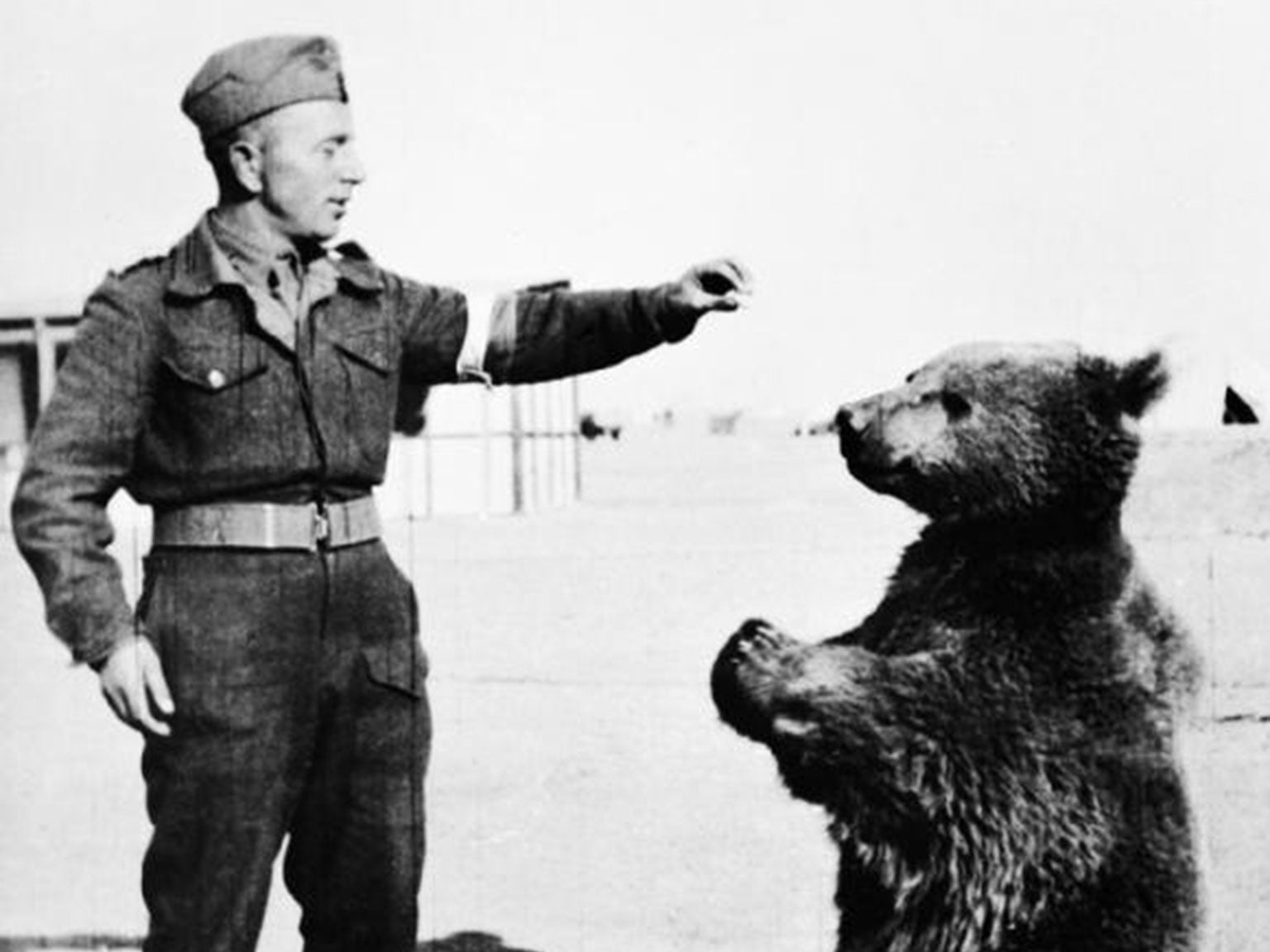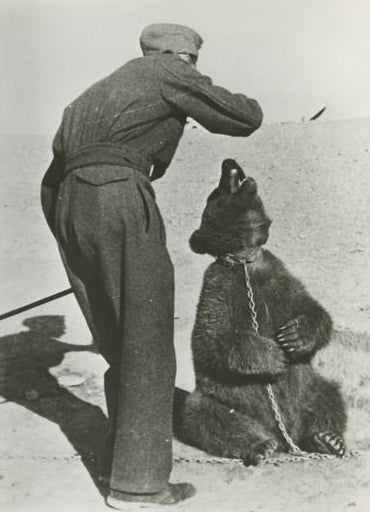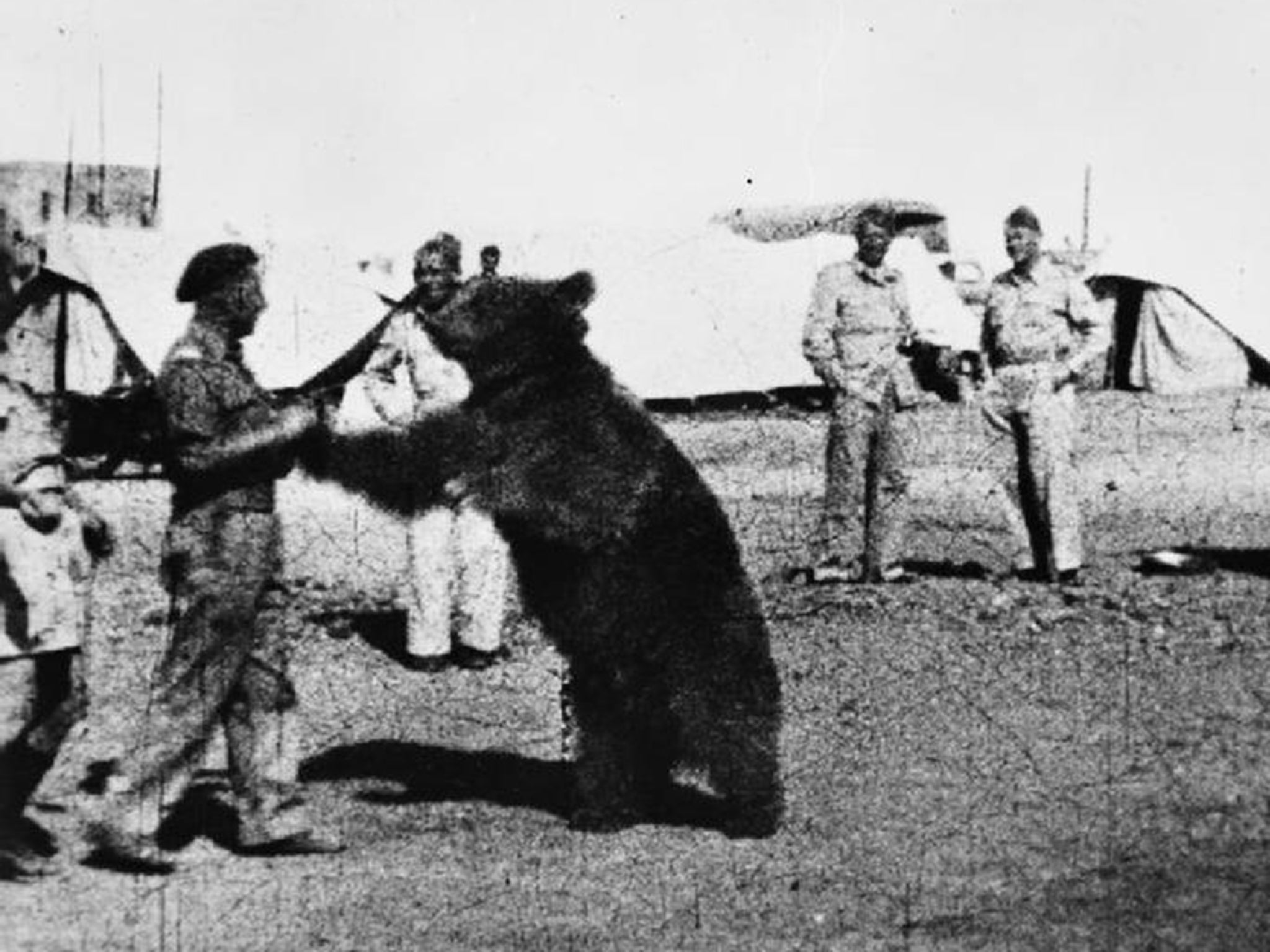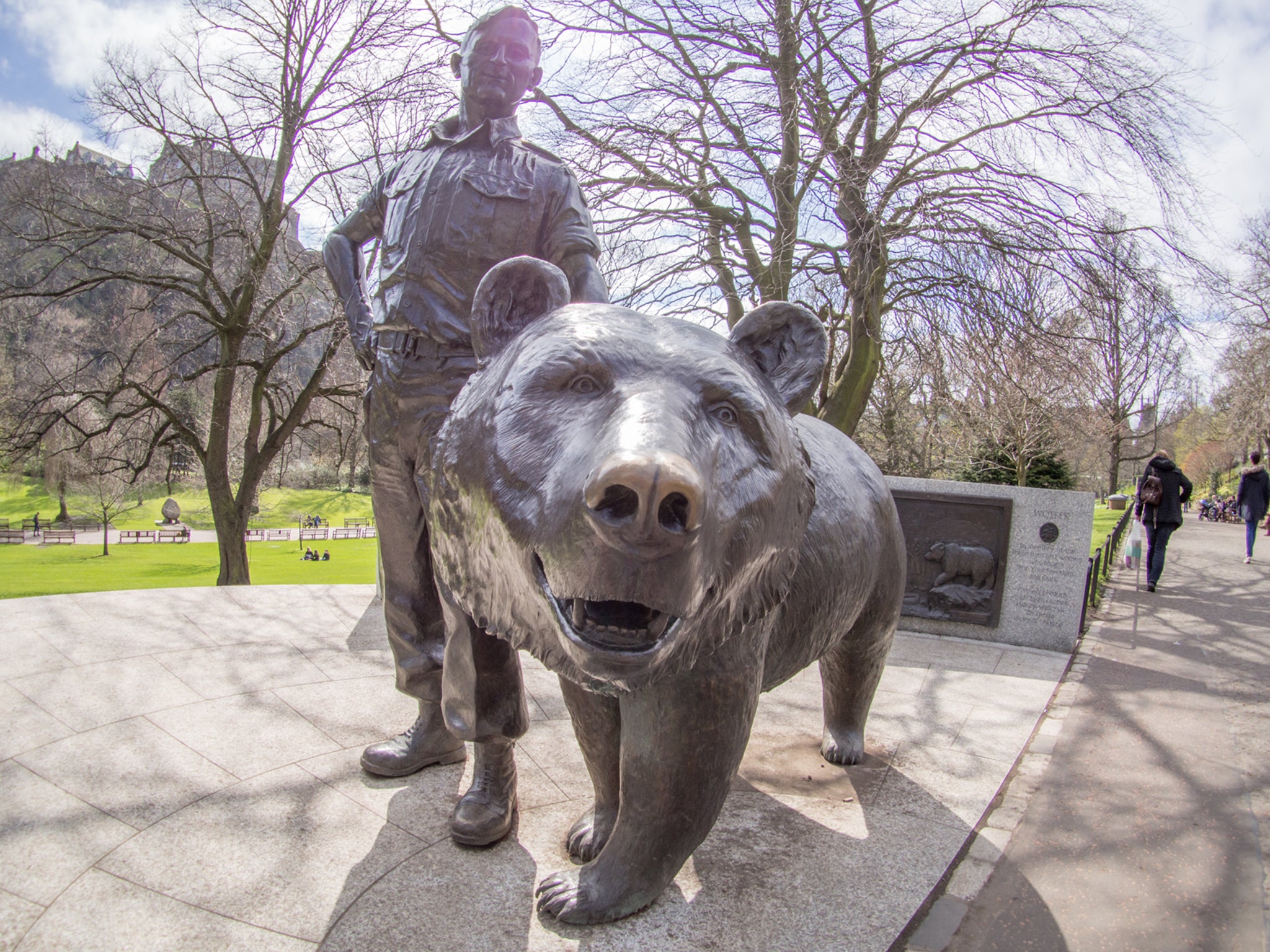Wojtek: The bear who fought Hitler's Nazis
The story of the bear cub raised by Polish soldiers who helped take Monte Cassino from the Germans is to be turned into an animated film by the executive producer of The Snowman

It is, perhaps, an unlikely way to honour a most unlikely war hero.
Wojtek, the bear who helped Polish soldiers win one of the most brutal battles of the Second World War, is to be the subject of an animated film by the executive producer of children’s Christmas classic The Snowman.
While The Snowman showed a child flying with an enchanted snowman to the sounds of Walking in the Air sung by a choirboy, A Bear Named Wojtek will feature the Battle of Monte Cassino, which left 75,000 people killed or wounded.
As he seeks a funding partner, however, ex-Snowman producer Iain Harvey should be able to show that A Bear Named Wojtek has the tear-jerking potential to match War Horse, which explored the bonds forged between humans and animals during the carnage of the First World War.
"It's fantastic to have a piece of magic that's real," Mr Harvey, of Illuminated Films, told The Times, admitting that at first he had assumed the story of the ‘war bear’ had been “pure fantasy”.
Wojtek’s story, however, was real. It began in the Alborz Mountains of northern Iran when a brown bear cub was orphaned by hunters who shot his mother.
First a young boy found and adopted the then small and fluffy bear cub.
Then in the autumn of 1942 the boy and the bear cub met a group of Polish soldiers, who were moving through Iran en route for Iraq.
By then, the growing bear cub looked tired and hungry. The soldiers felt sorry for him. They knew themselves what it was like to be tired and hungry.
They were in Iran having been released from prison camps in Russia after Stalin’s Soviet Union, which had invaded Poland with Hitler’s Germany in 1939, switched sides when the Nazis invaded the USSR in 1941.
Separated from their own families, the soldiers, who were to become members of the 22nd Artillery Supply Company of the Polish II Corps, bought the orphaned bear from the boy in exchange for some Persian coins, a portion of chocolate, a Swiss army knife and a tin of beef.

At first they hid the bear cub from their senior officers, feeding him diluted condensed milk from an old vodka bottle with an improvised rag teat.
It being quite hard to hide a Syrian brown bear, a subspecies related to the North American grizzly that grows to be 1.82m (6ft) tall, and weigh 200kg (31 stone), the senior officers eventually found the new recruit.
The bear, however, was allowed to stay as the unit’s new mascot.
A young soldier named Peter Prendys was appointed Wojtek’s ‘keeper’, teaching him how to salute.
Wojtek also adopted other soldierly habits.
At a time when the animal welfare risks of treating a bear like a human were less well understood, Wojtek drank beer, although he didn’t get drunk, because a single beer had little effect on his massive frame.
He smoked, although he only ever took one puff of the cigarette before swallowing it.
He also got into trouble behind the lines.
When the Poles moved to a large Allied military camp in Iraq, the playful bear allegedly stole an entire clothesline of ladies’ underwear belonging to female personnel stationed in the area.
It is also said that when the Poles came to prepare their traditional 1942 Christmas Eve feast, they discovered that Wojtek had got into the food store first, trashing it while gulping down anything that looked tasty for a bear.
The following year, however, the unusual recruit more than redeemed himself by capturing a would-be anti-British fighter.
In the heat of Gaza, in what was then British-administered Palestine, Wojtek had learned how to cool himself by sneaking into the bathing tent and turning on the shower.
One day the bear entered the tent and disturbed a local opponent of British rule who had sneaked into the camp in the hope of stealing ammunition. The man’s shrieks of terror upon being cornered by a bear in the shower tent ensured his swift arrest.
Wojtek was rewarded with two bottles of beer and unlimited shower time.
And so, when the time came to ship to the war in Italy, the Poles wanted their bear to come with them. Perhaps inevitably, the British military authorities had other ideas.
They insisted on a strict soldiers-only policy for troopships. So, legend has it, the Polish soldiers swiftly got their bear a service number, a rank (private), and an official pay book, (although he was only ever paid in food), all issued in the well-chosen name of Wojtek, meaning “smiling warrior”.
“But this is not a man!” exclaimed the British officer taking the embarkation register.
“Private Wojtek inspires fighting spirit in Polish soldiers!” came the inspired response.
The bear was allowed to board.

And so Wojtek faced many of the horrors endured by human soldiers during the Italian campaign.
It is said that when he first came under shellfire in May 1944, during the final stages of the Battle of Monte Cassino, he climbed a tree in a vain effort to escape.
From this vantage point, Wojtek saw his human companions carrying crates full of artillery shells.
Either from his desire to help his friends, or through having learned that copying humans was a way to get snack rewards, Wojtek climbed down the tree, stood on his hind legs and extended his two front paws.
The soldiers, it is said, gave him three crates of artillery rounds to carry. Despite the noise and confusion of battle, the gentle but mighty bear was said to have continued carrying the ammunition crates.
Indeed, the 2011 documentary Wojtek – The Bear That Went to War found one British veteran who swore blind that, in the heat of battle, he had been stunned to see a bear ambling past him carrying a crate of mortar rounds.
On May 18 1944, the Polish II Corps succeeded where three other units, including a force comprised partly of Gurkhas, had failed: they captured the seemingly impregnable, strategically vital ‘mountain fortress’ of Monte Cassino from the Germans.
With the approval of Polish high command, the 22nd Artillery Supply Company’s badge was changed to one showing a bear carrying an artillery shell.
The veterans who served alongside Wojtek had come to love him.
In 2011, Wojciech Narebski, an 86-year-old who had first encountered the bear as a 17-year-old soldier told the BBC: “I felt like he was my older brother.
“During those very difficult days of war, his presence was for us, from a psychological viewpoint, very important.”
And so, after the war was won, Wojtek’s fellow soldiers continued to protect him.
Given their previous treatment by Stalin’s Russia, many of them did not want to return home to a country that was coming increasingly under communist control.
Instead they took the opportunity to go to the settlement camp at Winfield Airfield, in the Scottish borders. They took Wojtek with them, frustrating the communists who had wanted to instal the bear, who by now was something of a national hero, in a zoo in Poland.
But as the human soldiers moved on to new lives outside the settlement camp, the time came when a new home was needed for Wojtek.

He moved to Edinburgh Zoo, living there until his death in 1963 at the age of 21 or 22.
By then, he had become so loved by Scots and Poles alike that in 2015 they united to raise £300,000 for a bronze statue of Wojtek in Edinburgh’s West Princes Street Gardens.
It stood on a platform made of Polish granite.
“Wojtek could not return to Poland,” said Mr Narebski, who unveiled the statue with another veteran, “But he is staying on Polish soil.”
And it seems that to the end of his days, Wojtek never forgot his former comrades in arms.
It is said that whenever he heard the Polish language or a Polish accent at the zoo, the old soldier bear would stand on his hind legs and wave a paw, as if in salute.
Join our commenting forum
Join thought-provoking conversations, follow other Independent readers and see their replies
Comments
Bookmark popover
Removed from bookmarks